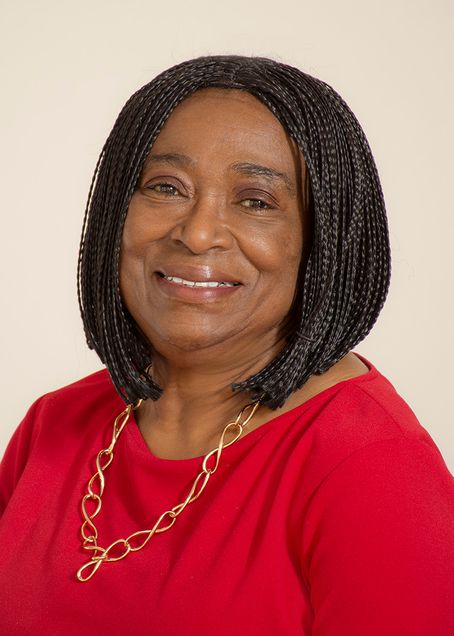Thank you, Malissia Evans!
 Malissia Evans has always gravitated to jobs where she was helping people. Whether it was working in halfway houses after she graduated from high school in Mississippi, an oncology clinic at Boston City Hospital (now Boston Medical Center), or with students at BUSM, Evans made it personal.
Malissia Evans has always gravitated to jobs where she was helping people. Whether it was working in halfway houses after she graduated from high school in Mississippi, an oncology clinic at Boston City Hospital (now Boston Medical Center), or with students at BUSM, Evans made it personal.
“It was always a part of who I need to be, to serve and help,” said Evans, who is leaving Boston University June 30 after 38 years, including the last 24 years at the School of Medicine as an administrative coordinator in the diversity & inclusion office and program coordinator for the Early Medical School Selection Program (EMSSP).
EMSSP engages students from underrepresented populations while they are undergraduates. It brings them to the University for summer programs then helps them transition into the medical school, supporting them throughout their medical school years. BUSM started the program in 1982 to address a chronic shortage of physicians from Black and other underserved populations.
Evans became the face of the program, known to generations of students as the go-to person when the pressure of medical school threatened to overwhelm them, or they needed an answer to something tangled in red tape, or they were homesick or beset by personal tragedy or heartache.
“The students confided in her, everything from financial challenges to romantic misadventures, to academic hurdles and without her it would have been really, really difficult to sustain the program because of that emotional void she filled,” said Rafael Ortega, MD, professor and chair of anesthesiology, an assistant dean for diversity & inclusion at BUSM and chief of anesthesiology at Boston Medical Center.
“While they (EMSSP students) were here it was my job to make sure they had all the things that they needed; that they were not feeling lost and out of place,” said Evans. “It became an amazing job. I loved every second of working with the students and trying my best to make sure that they were happy here.”
The universities and colleges participating in the program are generally smaller, located in the South, and less urban than BUSM, said Ortega. Adjusting to a rigorous and competitive medical school in a big northern city adds another layer of stress and even academically gifted students struggle.
A self-professed “hugger” born and raised in Mississippi, Evans was the sympathetic face of the medical school, someone who had answers or knew where to get them.
“It’s who I am really,” said Evans. Sometimes that personal touch was a sweet potato pie, occasionally a prayer, more often advice on navigating life and academia.
Evans will remain in the Boston area where her two children and three grandchildren live and will take longer trips back to her hometown of Sessums, Mississippi.
“I’m in Mississippi a lot because it’s where the heart is, where it starts and where it has continued to be,” said Evans.
View all posts